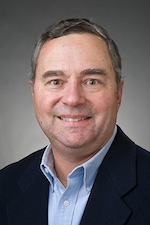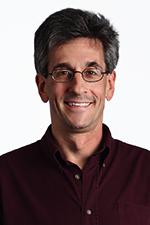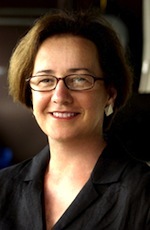National Academy of Sciences adds three UW-Madison researchers
Three University of Wisconsin–Madison faculty members have been elected to the National Academy of Sciences, the organization announced today.
James Dumesic, professor of chemical engineering, Samuel Gellman, professor of chemistry, and Margaret McFall-Ngai, professor of medical microbiology and immunology, are among 84 new members of the 151-year-old academy. Fellows are elected in recognition of their distinguished and continuing achievements in original research.
Membership in the academy, a private organization founded through an act of Congress signed by President Abraham Lincoln, is one of the highest honors conferred on American scientists and engineers.

James Dumesic
Dumesic, who joined the UW–Madison faculty in 1976, is the Steenbock and Michel Boudart Professor of Chemical and Biological Engineering. Widely recognized as a leading researcher in the fields of catalysis and chemical engineering, Dumesic has co-founded two companies and pioneered new processes for creating bio-derived fuels and chemicals. In 2013, he and colleagues at the Wisconsin Energy Institute created an efficient, scalable process for producing sugars that can then be converted into biofuels.

Samuel Gellman
Gellman, the Ralph F. Hirschmann Professor of Chemistry, joined the UW–Madison faculty in 1987, and works to reveal the ways proteins fold into the intricate shapes that make them valuable and productive in specific cellular processes. His lab developed a new family of chemical agents — called amphiphiles — to remove cellular proteins for study. He synthesizes new molecules to serve specific purposes, such as hybrid amino acids designed to interrupt the chemical communication between viruses and host cells.

Margaret McFall-Ngai
McFall-Ngai, a professor of medical microbiology and immunology at UW–Madison since 2004, studies symbiotic bacteria — from the way the bacteria recognize their host and influence their host’s development to the way host and bacteria maintain a mutually beneficial balance. Her work with the Hawaiian bobtail squid and the glowing bacteria that protect the squid from predators has described the chemical communication that may help bacteria establish a cooperative relationship with a host.
The new crop of members will be inducted in a year at the academy’s next annual meeting, and bring the full membership count to 2,214 and the total number of foreign associates to 444.
UW-Madison’s Yoshihiro Kawaoka, a professor of pathobiological sciences, was elected last year, and inducted as a foreign associate this week.
